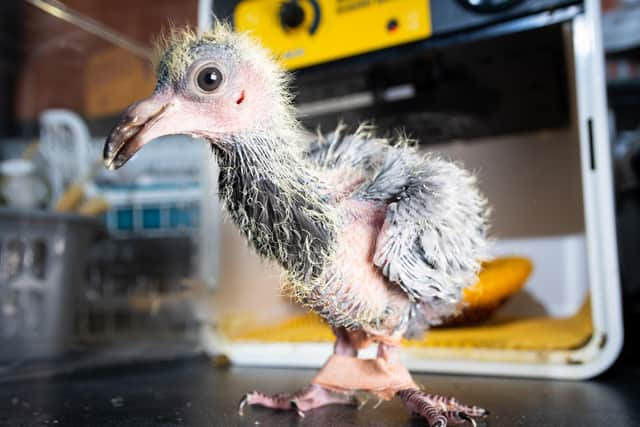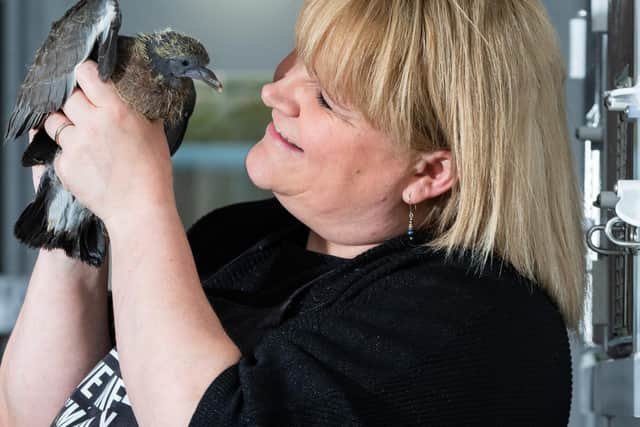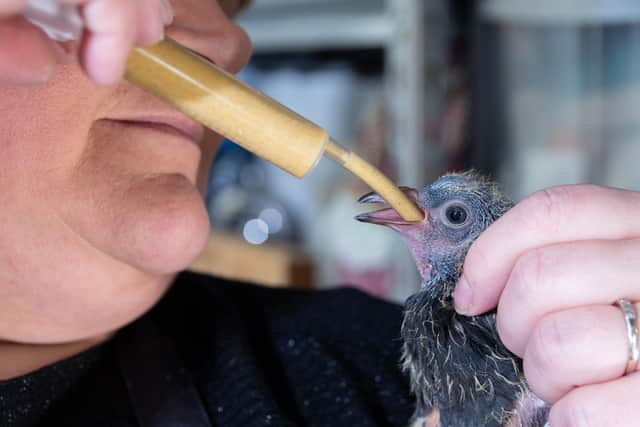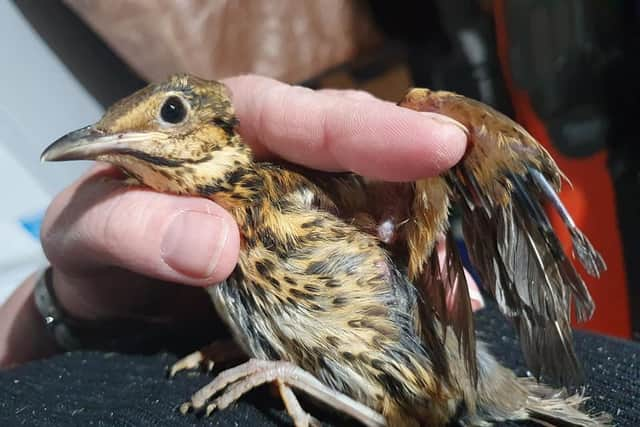Unfairly maligned pigeons get top-quality treatment in hand-knitted nests at South Shore wildlife rescue
and live on Freeview channel 276
While the public's hearts go out to the red squirrel, hedgehog, otter and barn owl - the endangered stars of the wildlife world - most people wouldn't think twice about a mangy-looking, one-legged pigeon pecking at the crumbs of a Greggs sausage roll in the town centre.
And while animal rescues across the country commonly take in cats and dogs, there are far fewer options out there for birds - and fewer still for the unwanted, overlooked pigeon.
Advertisement
Hide AdAdvertisement
Hide AdThat's where Mel Greenhalgh and the Brambles Wildlife Rescue in South Shore step in. With tiny splints for broken legs and hand-knitted nests to keep them cozy, injured pigeons and other birds are nursed back to health before flying free once more in Stanley Park.


Mel said: "People have an old age attitude that pigeons are disease spreaders or vermin. But there's nothing in law that classifies them as vermin - it's simply something people say. In fact, pigeons are a very intelligent species. They're quite loving, especially the young ones, so they're very easy to get attached to, which we try not to do as they all have to be let go eventually."
Mel set up the Brambles Wildlife Rescue from her home shortly after lockdown began last year, after taking in a handful of starling chicks that needed feeding diligently every 20 minutes.
Since then she has rehabilitated 140 animals, including pigeons, seagulls, mice, rabbits, garden birds, and hedgehogs.
Advertisement
Hide AdAdvertisement
Hide Ad"Seagulls aren't the easiest of birds and they will go for your face if they can. I've had the bruises to prove it!" Mel said. "I can only take one seagull at a time because they need so much space.


"We quickly get full because there's nowhere else for these birds to go. I've taken in birds from as far away as Preston and even Bolton. It's constant. Usually, as I'm waiting for a few to go there's a lot more waiting to come in. I can't remember the last time I had an empty cage.
"We get mostly pigeons. The last five admissions were baby wood pigeons. If we fast-forward to September, we will be inundated with hedgehogs. We've had thrushes, blackbirds and starlings. But pigeons are around all year.
"They are very vulnerable birds because there are so many of them. They get in the way, get hit by cars, and fly into windows. But to some extent they are easy to rehabilitate. whereas little garden birds like robins and sparrows, you'd be lucky if you saved one in five."
Advertisement
Hide AdAdvertisement
Hide AdAs well as a clean cage, medicine and plenty of good food, each animal that comes into the Brambles Wildlife Rescue is given a name, and supporters are able to follow their rehabilitation on the rescue's Facebook page.


Mel said: "Every life should have a name. Then, whether it stays and has a second chance at life, or if it passes, it's important to somebody."
She added: "Why should one animal have more meaning than another? Why should a swan have more right to life than a seagull or a pigeon?"
Current residents include red pigeons Winter, Star and Scarlett, feral pigeons Sunny, Percy, Teddy, Matilda, Toby, T-Rex and Duke, wood pigeons Nigel, Bluebell, Cinders, Bess and Patch, collared dove Penelope, song thrush Buddy, and a hedgehog called Winnie.
Advertisement
Hide AdAdvertisement
Hide AdUnfortunately for Mel, providing care for such a large menagerie of wild animals adds up.


"At the moment, it costs us between £250 and £300 a month. The bulk of that is medication. I probably spend £140 a month on formula for birds who can't feed themselves," she said.
"I have a wonderful team of knitters who make nests and blankets for me. We like the animals to be comfortable while they are here, so they all have a knitted nest and perch. Even the hedgehogs have little snuggle sacks. That's an enormous help.
"We've just spent £5,000 on some vet-grade cages, which will be a great help because before we were relying on hutches.
Advertisement
Hide AdAdvertisement
Hide Ad"Everything we get, we get from the public. It doesn't cover everything, but it gets me a good way in."
All donations to the rescue goes towards puppy pads, vet-grade disinfectant, worming tablets, antibiotics, dressings, bandages, vitamins, heat pads, hand-feeding formula, transport cages, and other things needed to nurse the animals back to health.
People can find out more about the Brambles' fund-raising efforts at https://www.justgiving.com/crowdfunding/brambleswildlifersecue
Comment Guidelines
National World encourages reader discussion on our stories. User feedback, insights and back-and-forth exchanges add a rich layer of context to reporting. Please review our Community Guidelines before commenting.